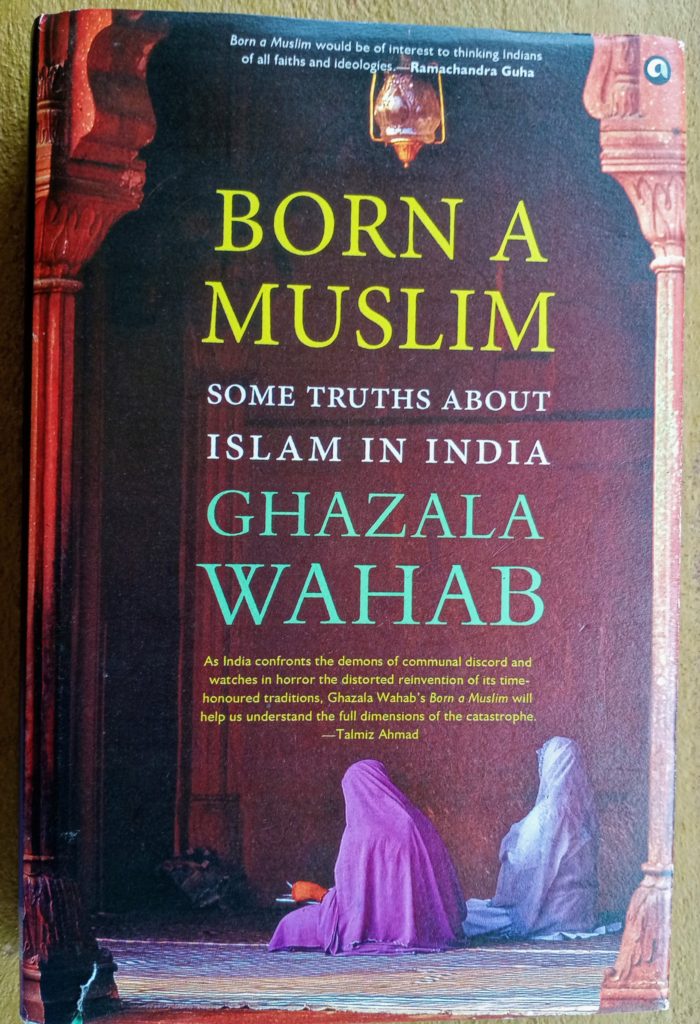One of the most tragic episodes in the Gujarat riots was the brutal murder of Ehsan Jafri. Neither his privileged status as a Lok Sabha MP nor his high profile contacts didn’t help him when it was most needed. He had made numerous calls to senior police officials but none responded and he was burnt to death at his Gulbag Society flat. JS Bandukawala, a professor and a social activist in Gujarat, narrowly escaped death during the riots. Ironically, just a few days before the riots, he had attended an RSS seminar and even praised Veer Savarkar!
A similar incident which remained as a deep scar in her memory, triggered journalist Ghazala Wahab to write a book on what it means to be a Muslim in India. Despite her father’s hobnobbing with the ‘who is who’ of the Agra city, their house was attacked by Advani’s rath yathra-incited Hindutva goons in 1990. All these incidents underline the fact that your ‘secular Muslim’ grab or privileged status won’t give you a shield against the wrath of Hindutva.
As a privileged kid studied in top public schools and colleges in Agra and Delhi, she too had a contemptuous look towards the uneducated topi and purdha-clad Muslims living in ghettos of north India. But research for the book forced her to come down and have a closer look at the precarious life in these ghettos. It came to her shock that the most dominating feeling among the community is not fear of poverty but fear of life.
It dictates all their choices from education to employment to embracing modernity. Their primary concern is not to become ‘progressive Muslim’ but to save their life and belongings. She also realises that systematic socio-political discrimination by the law making and law enforcing agencies is the root of Muslim backwardness in India.
In the course of her research she meets several youths who changed their Muslim names to conceal their identity for fear of life and losing jobs. “If I have a Hindu name, no one will bother that I work with cattle skin. But as a Muslim, I worry every moment,” says a man from UP who changed his name to survive after the Yogi Adityanath government started targeting Muslims over beef eating and cattle trade.
The fear factor has deepened by the arrogant and unapologetic Hindutva rhetoric and provocative way of law making by the Modi government. A series of unilateral actions such as the Triple Talaq bill, Bifurcation Jammu & Kashmir, Babari verdict and most importantly, the Citizenship Amendment Act, has almost pushed the community to the wall.
The book is mostly north-centric and Muslims in southern part of India got only some passing references. In one or two places she touches upon Muslims of Kerala. But her understanding of the issues are mostly based on popular narratives. Her ignorance get exposed when she writes that “the most enduring legacy of the rebellion (Mappila rebellion) was the massacre of the Hindus in the Malabar coastal belt in the name of establishing Khilafat.” She also gulps the NIA cooked up stories on a large scale ISIS network among Muslims in south India.
Born A Muslim: Some truths about Islam in India, is partly autobiographical and a good portion deals with the crisis of managing her own Muslim identity in a hugely polarised society. However, instead of banking only on books, she has tried to talk to a cross section of the society, including writers, activists, religious scholars, politicians and men on the street to gauge the pulse of the community. And as she rightly admitted, it prompted her to change her ‘top down’ approach on the difficulties facing the community from continuous denial of constitutional rights to perpetual fear of being framed as terrorists by the authorities for no rhyme or reason.
Apart from reiterating already known facts, the book doesn’t provide any thoughtful insight about problems of the community. As numerous studies hitherto recommended, she also distills down the way outs into three things. Education, poverty alleviation and political empowerment of the community as the legitimate ways of bringing out the community from a doomed state. Describing the current state of fear among Muslims in India, she succinctly puts it, “it is inducing fear, self-pity, as well as latent anger. Nothing good can emerge from this”. As the state itself increasingly becomes a monster, the battle for the community seems to be a long drawn out one.
—
hussain kodinhi
